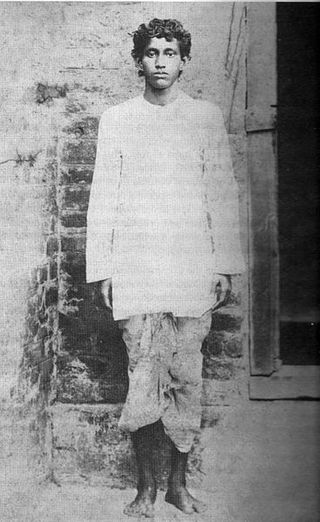Khudiram Bose

| Birth place | Mohobani, Midnapore, Bengal Presidency, India (present-day West Bengal) |
| Date of death | 11 August, 1908 |
| Movement | Indian Freedom Struggle |
| Mother | Lakshmipriya Devi |
| Father | Trailokyanath Bose |
| Date of birth | December 3, 1889 |
'There are some people who live in a dream world, and some who face reality; and then there are those who turn one into the other.' Douglas Everett
INTRODUCTION
The story commemorates the era when politics was for national interest to end the British raj and re-establish true Indian virtues. It is the legendary tale of a patriot whose dreams perfectly aligned to the mission of complete freedom for his matrubhoomi (motherland). The symbol of well-directed power and pure devotion towards his country, Khudiram Bose was among those martyrs because of whom we have the privilege of independence and empowerment.
MUZAFFARPUR CASE
Khudiram was one of the youngest revolutionaries of the Indian Freedom Struggle. Along with Praful Chaki, he immortalised the Muzaffarpur Conspiracy Case [ref] and finely demonstrated bravery as a threat to the oppressive rulers. The young fighters had made multiple attempts to assassinate Kingsford. Their only concern was to make sure no civilians were injured in the process.
Thereafter, on April 30, 1908, Bose threw a bomb on a carriage which he suspected was carrying Doughlas Kingsford. But it turned out that it was carrying the wife and daughter of a barrister named Pringle Kennedy, who lost their lives as Kingsford escaped. Chaki killed himself before he could get arrested. [ref]
DEATH SENTENCE
Khudiram ran away swiftly from that spot. But later on, he was arrested. After the judicial trial, he was proved guilty, and as a convict, he was sentenced to death by hanging. Khudiram Bose welcomed this penalty, most cordially singing the glorious song of death on August 11, 1908. [ref]
MENTIONS
"The Railway station was crowded to see the boy. A mere boy of 18 or 19 years old, who looked quite determined. He came out of a first-class compartment and walked all the way to the phaeton, kept for him outside, like a cheerful boy who knows no anxiety... on taking his seat, the boy lustily cried 'Vandemataram'," wrote The Statesman on the following day, 2nd May 1908. [ref]
The Kesari, a famous nationalist paper, commented on 26 May, 1908, less than a month after the Muzaffarpur bomb episode, 'Neither the Jubilee murder of 1897, nor the reported tampering with the Sikh regiments had produced so much commotion, and the English public opinion seems inclined to regard the birth of the bomb in India as the most extraordinary event since the mutiny of 1857. [ref]
EARLY LIFE
The young warrior martyred, at the age of 18, was an active participant in the freedom movement. 'Sonar Bangla' by Gupta Samiti portrayed the damage caused to Indians by the British. While distributing the booklet and propagating the anti-British sentiment in the minds of Indians, Khudiram was arrested by the police. Saved from imprisonment due to his age (14 years), he was marked as a defaulter by the British. [ref]
INSPIRATION
Inspired by his headmaster, great revolutionaries like Aurobindo, and the need for the Swadeshi Movement (boycott of foreign goods), Khudiram was the young revolutionary energy that left his golden presence in history of the Indian Freedom Movement. [ref]
CHILDHOOD
Born on December 3, 1889, in West Bengal's Medinipur (then Midnapore) district [ref], he lost his parents at an early age. His sister brought him up with motherly care and aspirations for his future as a well educated and learned man. Khudiram had patriotic ambition - freedom of his homeland.
END NOTE
The extraordinary zeal of this Braveheart, who contributed to our sovereignty and independence, will continue to inspire us forever. The epitome of commitment and sacrifice, Khudiram Bose is heroism defined in the right way.
